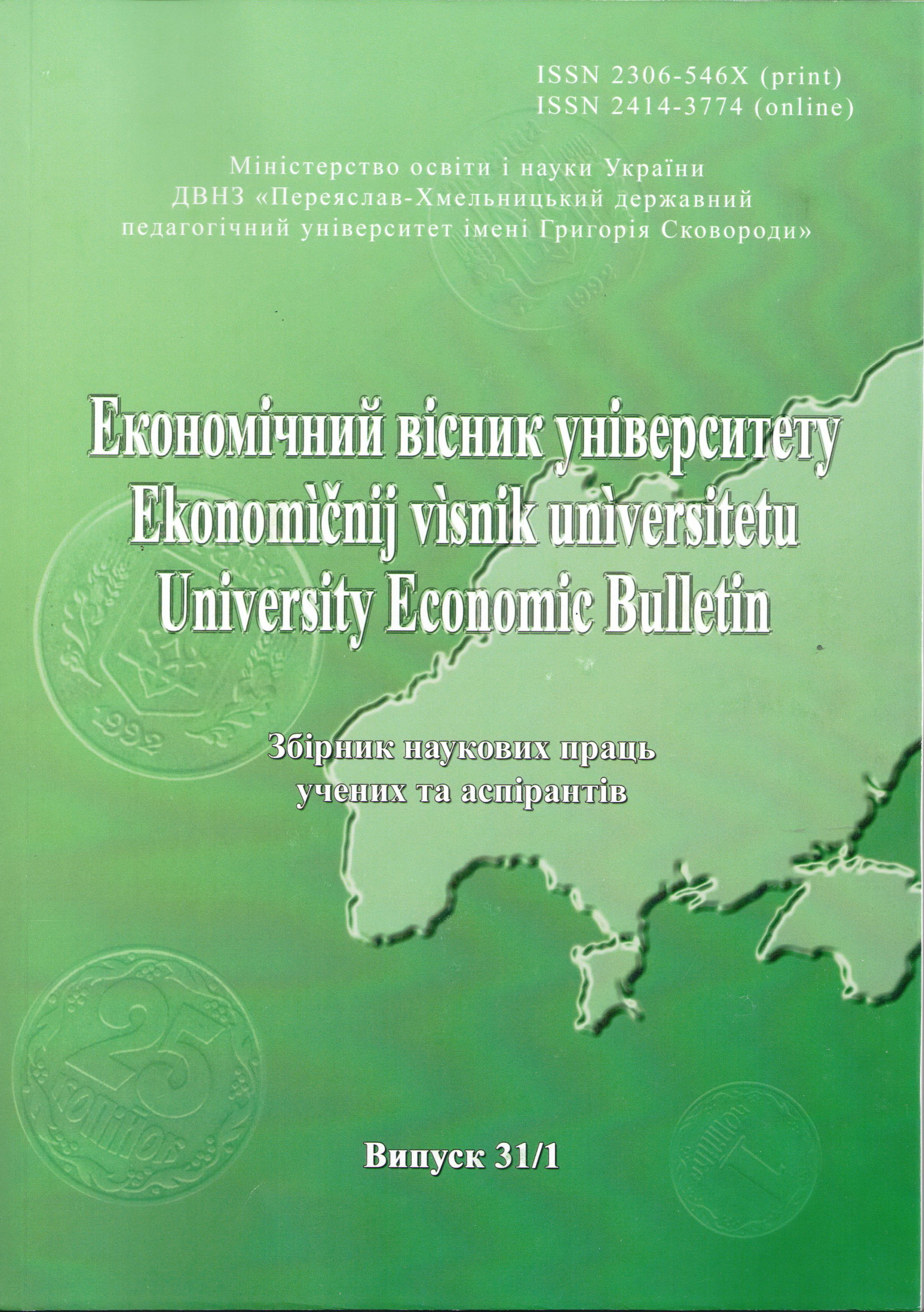Economic growth and fiscal–monetary policy coordination
Economic growth and fiscal–monetary policy coordination
Author(s): Iryna Lukianenko, Viktor TokarchukSubject(s): National Economy, Economic development, Public Finances, Fiscal Politics / Budgeting, Socio-Economic Research
Published by: Університет Григорія Сковороди в Переяславі
Keywords: system analysis; economic growth; monetary policy; fiscal policy; joint effect; panel data models;
Summary/Abstract: The object of the research is the coordination of fiscal and monetary policies and the methods of the estimation of its effect on economic growth in Ukraine as well as in the other developed and emerging countries.The main aim of the research is to find out whether and how the coordination of fiscal and monetary policies affects economic growth in a country; estimate the impact of their coordination policy on economic growth on the base of the build econometric panel data models and elaborate the propositions about effective government strategies for macroeconomic stability achievement and stimulation of the economic growth in short and long run.The study used general scientific methods of analysis and synthesis, methods of grouping, detailing,generalization and systematization of data, as well as economic and mathematical methods, includingeconometrics panel data methods and models.The results. Fiscal and monetary policies jointly influence on economic growth through the keymacroeconomic indicators such as inflation, interest rates, exchange rate etc, The joint statistical investigation of fiscal and monetary policies with real GDP growth and the main macroeconomic indicators in the developed and emerging countries revealed that, on average, coordinated policies are more supportive for non-inflationary economic growth than uncoordinated. However, in general, as statistical analysis has shown, evidence is mixed,so further quantitative investigation on the based of econometric tools has been done. In this context the panel data empirical model of economic growth and some of it modifications incorporating separate and joint effects offiscal and monetary policy were elaborated. Quantitative econometric analysis of economic growth and coordination of fiscal and monetary policies, undertaken on the basis of neoclassical model of growth and panel data methodology, revealed that there is an impact of coordination of fiscal and monetary policies on the short and medium-term economic growth. However, in the long run there are fundamental factors (initial GDP, capital formation, human capital, and trade freedom) that matter.The results can be used to form government programs and strategies for macroeconomic stability achievement and stimulation of the economic growth in short and medium terms as well as in long run.Conclusions. The results of the system theoretical, statistical and econometrics analysis reveal that coordination of fiscal and monetary policies do matter in the short to medium run. More specifically, it has been found that the «ideal» policy mix for economic growth is one of contractionary fiscal and expansionary monetary policy, however, in the long run there are fundamental factors that matter. As for economic policies in Ukraine,given the empirical findings it is desirable to pursue reasonably tight fiscal and reasonably expansionary monetary policies to achieve higher rates of economic growth in the short and medium run, while improving the economy’s institutional framework, physical and human capital to sustain higher rates of growth in the long run.
Journal: Економічний вісник університету
- Issue Year: 1/2016
- Issue No: 31
- Page Range: 291-300
- Page Count: 10
- Language: English

